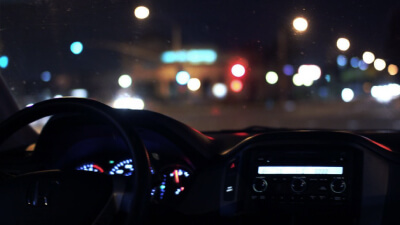DUI Laws in California
DUI Laws in California
In the state of California, driving under the influence i.e DUI is listed as a criminal offense and also misdemeanor under Vehicle Code Section 23152(a). In most cases, getting arrested for a DUI as a first time offender, will be considered as a misdemeanor. The state has various DUI charges and violators will be charged in accordance to the crime committed:
California Vehicle Code: | Significance: |
23153 VC | Defines any injury caused by the person operating the vehicle in an inebriated state |
23152 (d) VC | States that commercial drivers are restricted to drive a vehicle with a BAC of .4% or more |
23152 (e) VC | Any drivers hired for operating a service vehicle with a BAC of 0.04% or more are violating the law. |
23152 VC | This law states that it’s unlawful in the state to drive under the influence of alcohol |
23152 (f) VC | This law states that it’s illegal to operate a vehicle under the influence of narcotic substances |
23152 (g) VC | This law states that it’s illegal to operate a vehicle under the influence of both drugs and alcohol |
The state of California has a DUI law that prevents individuals from driving under the influence of drugs/alcohol or with a BAC of .8% or more. The individual is further prosecuted on the basis of his/her prior driving record and the severity of the violation committed.
Once you get convicted under the specific law, the penalty and jail sentence will be awarded accordingly depending on the severity of the violation and driver history.
Legal Vehicle Operating limits in California
In order to legally operate a vehicle in the state of California, your BAC must be at least:
- Below 0.04% if you are a commercial driver
- Below 0.01% if you are under 21
- Below 0.08% if you are over 21
What happens when you get convicted for a DUI in California?
Being arrested and getting bail:
If you get charged with a DUI violation and get arrested, you can expect yourself to defend against both the DMV’s attempt to suspend your driver’s license and against criminal charges brought by prosecutors. The consequences for a conviction on these charges depend on several factors, such as whether you have a prior DUI offense or offenses on your record.
Majority of the people who get arrested, can obtain bail within a few hours after the arrest. First time offenders need not post bail in cases that include zero damage to property or people.
License Suspension and applying for restricted license:
A DUI arrest will likely result in your driving license being suspended for a specific time period. The suspension period of your license depends on several factors such as:
- Your BAC levels
- The number of prior offenses committed
- Property damage/injuries caused
If your license gets suspended, you can apply for a restricted license after a first offense DUI. This means you could drive legally to and from work and and from a treatment program. To be eligible for a restricted license you must meet the following criteria:
- Be older than 21 years
- Agree to complete a chemical test
- Cause no bodily harm under your accident
- Enroll in a first offender alcohol program
- Pay reissuance fees to the DMV
- Provide proof of insurance to the DMV
California DUI Penalties
| Offense Count: | 1st Offense | 2nd Offense | 3rd Offense |
| Jail Sentence | Up To 180 Days | 5-365 Days | 120-365 Days |
| License Suspension | 180 Days | 2 Years | 3 Years |
| IID Requirements | 6-12 Months | 1 Year | 2 Years |
| Fine | $390 to $1,000 | $390 to $1,000 | Up to $1,800 |
Additional California DUI Laws
Penalties for a California Felony DUI:
If an individual is charged with four or more DUI convictions in a span of 10 years, he/she will get charged with California Felony DUI. The penalties are as follows:
- Fines amounting to $390-$1,000
- Jail Time of 16-36 months
- Compulsory IID installation for a minimum time period of 1 year
- Designation as an “HTO” by the DMV.
California’s BAC Limit and Per Se DUI Law:
A drunk driving offense in the state of California based on the individual’s Blood alcohol content is called ‘per-se’ DUI. The amount of alcohol a person must consume is based on several factors such as:
- Number and strength of drinks
- Time period over which the drinks were consumed
- Whether the driver has eaten anything, and
- Certain medical conditions that can affect how the body metabolizes alcohol.
- Gender
- Body Size
Refusing a BAC test in California and implied consent law:
The implied consent law in the state of California requires all drivers who are arrested for DUI charges to undertake BAC testing. Drivers who refuse to undertake testing are mandated to pay a fine of $125 and get charged with license suspension.
| Offense Count | 1st Offense | 2nd Offense | 3rd Offense |
| Suspension Time | 1 year | 2 years` | 3 years |
SR22 Insurance requirements in California
In California, if your license is suspended for any moving violations or you are convicted of a more serious driving-related offense then The California DMV (Department of Motor Vehicles) will likely need you to obtain an SR-22 from a licensed auto insurance company to get your license reinstated.
California SR22 is a legal requirement when a driver has a DUI/DWI conviction, an at-fault collision, a driving-without-insurance citation, accumulating too many license points, or a citation for driving with a suspended license.
Summary
The most suitable way to avoid getting charged with a DUI violation or having to pay hefty DUI fines is to abstain yourself from driving when you are under the influence of alcohol. But that might not necessarily happen as mistakes are bound to take place – statistics have shown more than 26,000 California drivers per year get charged with a DUI violation on average.
We at SR22InsuranceNow aim to provide you with the most accurate and up to date information regarding California DUI laws so that you can take the right decision if a certain situation arises.










